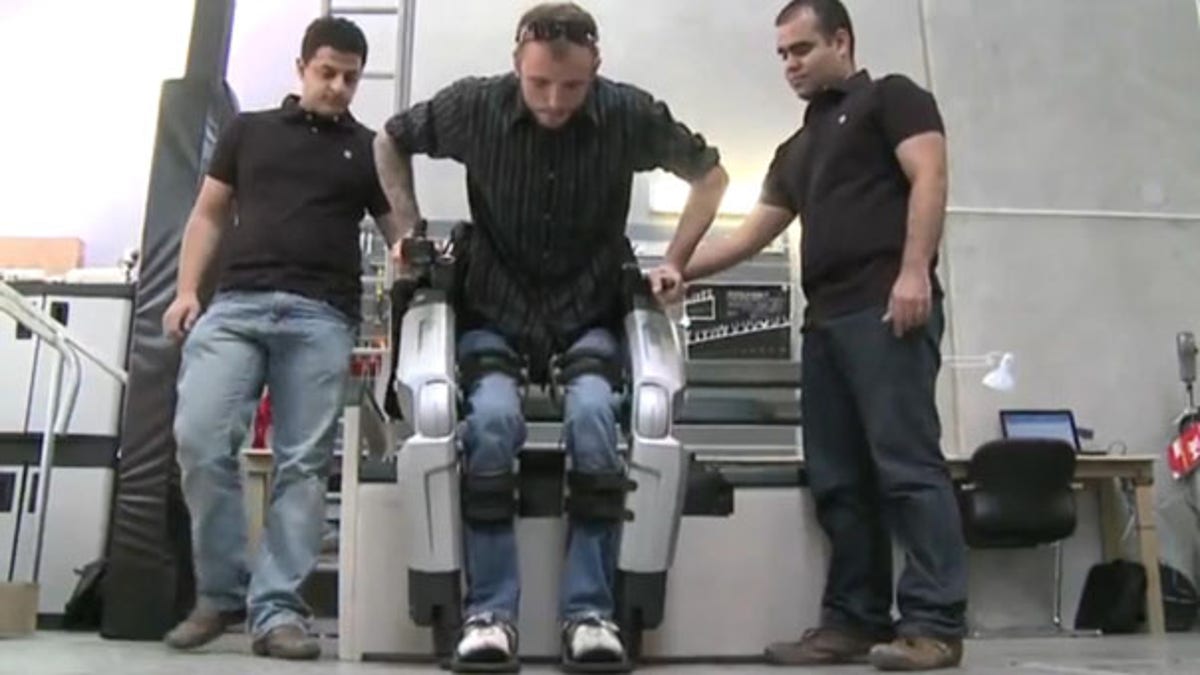
Hayden Allen, who injured his spinal cord five years ago, tests out Rex, the robotic exoskeleton. "I'll never forget what it was like to see my feet walking under me the first time I used Rex," said Hayden. (Rex Bionics)
Wheelchair users were given hope of improved mobility Thursday as a New Zealand company unveiled its so-called robotic legs invention.
Rex the Robotic Exoskeleton was designed to support and assist people who usually use wheelchairs, enabling them to stand, walk and navigate steps and slopes -- offering a range of options its makers said were not currently available anywhere else in the world.
Rex Bionics, the company that developed the legs, was founded by New Zealanders Richard Little and Robert Irving, who used their personal experience to help create the wheelchair alternative.
"Both of our mothers are in wheelchairs so we are aware of some of the obstacles and access issues faced by many wheelchair users," said Little.
Irving was diagnosed with multiple sclerosis seven years ago, which was when the pair began engineering the product.
One of the first people to test Rex was Auckland, New Zealand, man Hayden Allen, who became a full-time wheelchair user after injuring his spinal cord five years ago.
"I'll never forget what it was like to see my feet walking under me the first time I used Rex," said Hayden, who is 6 feet 4 inches tall when standing.
The founders stressed the product was not a replacement for a wheelchair, but a practical standing and walking alternative. It is potentially suitable for manual wheelchair users who can self-transfer and operate hand controls.
"For many of my patients, Rex represents the first time they've been able to stand up and walk for years. There are obvious immediate benefits in terms of mobility, improved social interaction and self-image," said Dr. Richard Roxburgh, Auckland neurologist and medical adviser to the Muscular Dystrophy Association.
"There are also likely to be major long-term health and quality of life benefits through reducing the complications of being in a wheelchair all the time. I think that this will also enable people to stay well longer. This means that those who have conditions where disease-modifying treatments are coming over the next five to 10 years will be in better shape when those treatments finally arrive."
Rex was expected to cost $150,000 when it goes on sale worldwide next year. It will be on sale this year in New Zealand, where it will be available at a lower price.
In 2009, Japanese motor company Honda showcased prototypes of walking assistance devices still at test stage.








































